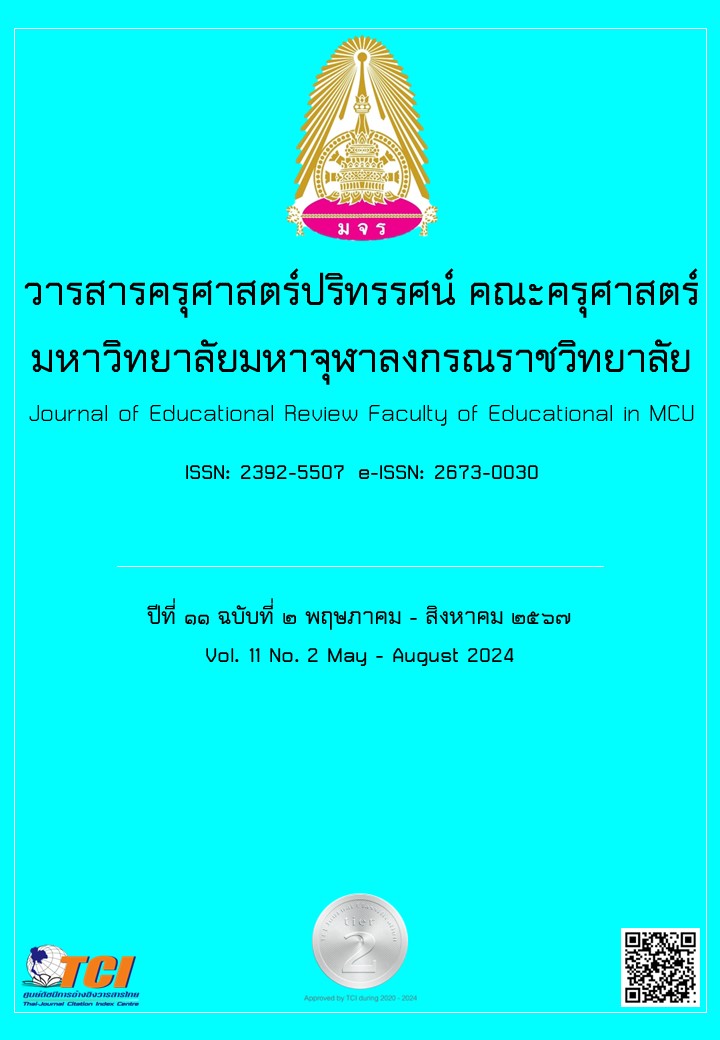INVESTIGATING NEEDS AND PROBLEMS OF ACADEMIC ADMINISTRATION ON THE COURSE OF JOURNALISTIC WRITING IN GUANGXI VOCATIONAL UNIVERSITY OF AGRICULTURE
Main Article Content
Abstract
Academic administration guidelines are very important for any major. It is necessary for teachers and students of journalism majors to develop an effective academic administration guide, which can help teachers and students better understand the writing courses. The objectives of this research were: 1) To investigate the opinions of students, teachers and administrators towards the academic administration on the course of journalistic writing. 2) To propose academic administration guidelines on developing journalistic writing manual for journalism students. The respondents of this study were 216 students, and 60 teachers and administrators at Guangxi Vocational University of Agriculture, obtained through "stratified random sampling". The research instrument employed in this study were questionnaires and a set of questions for the focus group discussion. The information and data collected were analyzed and presented in terms of frequency count, mean values, and standard deviation. The results show that: 1) the problems in the academic administration on the course of journalistic writing of Journalism students of Guangxi Vocational University of Agriculture are at the "high" level regarding the necessity of offering writing courses and students’ needs. In term of curriculum, students mentioned that writing courses had many hours and students felt tired were at the highest level; For the instruction part, students pointed that they could not bear hardships and stand hard work, and they were unwilling to learn more other knowledge were at the highest level. For the evaluation part, students thought that what the teacher taught in class was not what they needed were at the highest level. 2) The developing manual writing for journalistic writing consisted of 5 units composition. All 5 units had been evaluated by three experts, and the IOC value was 0.67-1.00, indicating that the developed writing course guidelines was acceptable and could be used as a manual of journalistic writing for journalism students to Improve writing skills and knowledge.
Article Details

This work is licensed under a Creative Commons Attribution-NonCommercial-NoDerivatives 4.0 International License.
ทัศนะและความคิดเห็นที่ปรากฏในบทความในวารสารฉบับนี้ถือเป็นความรับผิดชอบของผู้เขียนบทความนั้นเพียงผู้เดียว และไม่ถือเป็นทัศนะและความรับผิดชอบของกองบรรณาธิการ
กองบรรณาธิการขอสงวนสิทธิ์ในการคัดเลือกบทความลงตีพิมพ์และจะแจ้งให้เจ้าของบทความทราบหลังจากผู้ประเมินบทความตรวจอ่านบทความแล้ว
ต้นฉบับที่ได้รับการตีพิมพ์ในวารสารครุศาสตร์ปริทรรศน์ คณะครุศาสตร์ มหาวิทยาลัยมหาจุฬาลงกรณราชวิทยาลัย ถือเป็นกรรมสิทธิ์ของคณะครุศาสตร์ มหาวิทยาลัยมหาจุฬาลงกรณราชวิทยาลัย ห้ามนำข้อความทั้งหมดหรือบางส่วนไปพิมพ์ซ้ำ เว้นเสียแต่ว่าจะได้รับอนุญาตจากมหาวิทยาลัยฯ เป็นลายลักษณ์อักษร
References
Ding, G. (2017). How to determine the training targets and curriculum of university journalism education. Jiangxi Journal. 4. 70-73.
Fu,L. (2021). Education reform of Journalism and Communication in colleges and universities from the perspective of new liberal arts. N. Writ Int. J. Pract. Theor. Creative. 3. 1-2.
Haberstroh, J. (2020). Public Relations graduates don’t measure up as writers. Public Relations Quarterly. 39(4). 22-25.
Haladyna, T. (2019). Developing and validating multiple-choice test items. New Jersey: Lawrence Erlbaum.
Han, Y. (2017). Optimization of the structure of disciplines, majors and personnel training types in higher education. China Higher Education. 12. 30-33.
Hirst, M. (2010). Journalism education “Down Under”. Journalism Studies. 11(1). 83-98.
Marconi, F. (2020). Newsmakers: Artificial Intelligence and the Future of Journalism. Columbia University Press.
Mensing, D. (2020). Rethinking (Again) the future of journalism education. Journalism Studies. 11(4). 523.
Sekaran, U. (2018). Research methods for business. 3rd ed. New York: John Wiley & Sons, Inc.
Wright, S. & Nolan. D. (2021). The development of data journalism in China: influences, motivations andpractice. Digital Journalism. 1-18. https://doi.org/10.1080/21670811.2021.1927779


